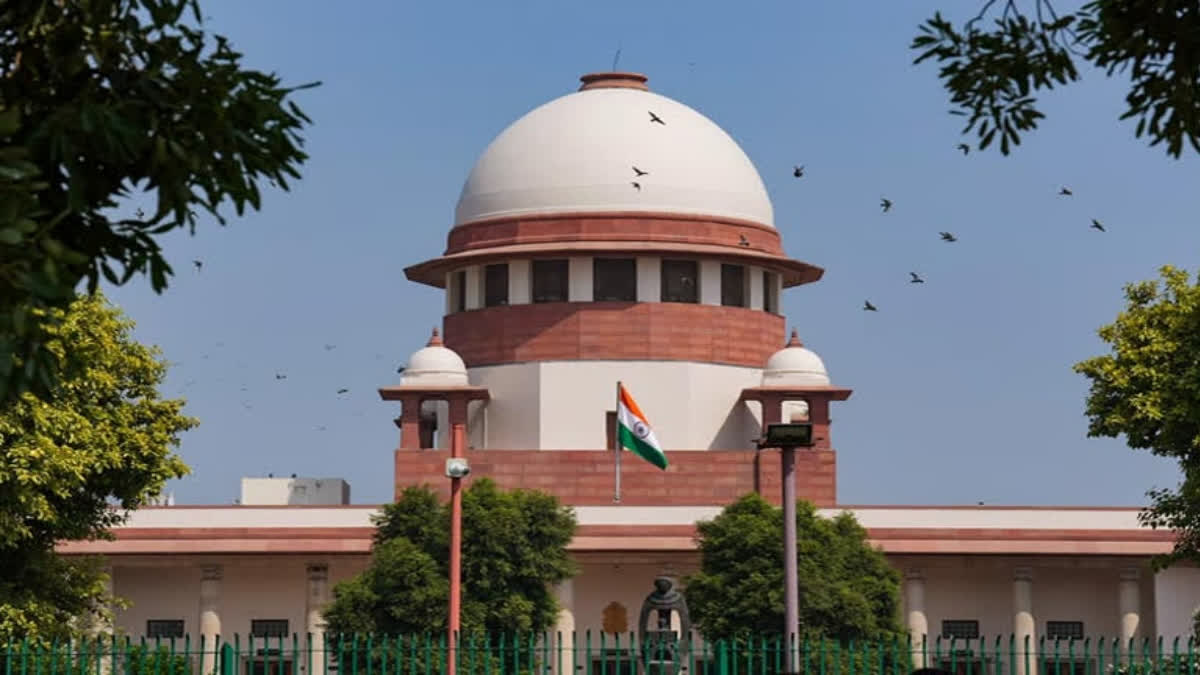New Delhi:In the ongoing hearing in the Article 370 abrogation case, the Supreme Court on Monday sought an answer from the Centre on two issues raised by petitioners’ counsel: Isn’t it downgrading converting the erstwhile state of Jammu and Kashmir into a union territory and Article 356 (President’s rule) can only be extended for a period of three years, hasn’t that exceeded?
A five-judge constitution bench headed by Chief Justice of India D Y Chandrachud and comprising justices S K Kaul, Sanjiv Khanna, B R Gavai, and Surya Kant, is hearing a batch of pleas challenging the abrogation of Article 370, which bestowed special status on the erstwhile state of Jammu and Kashmir.
Justice Khanna asked two questions to Solicitor General Tushar Mehta, representing the Centre: “Converting J&K into a union territory, what is being argued by the other side is….it is downgrading. Number 2, in Article 356 the maximum tenure as prescribed is 3 years. We have crossed those 3 years...” Mehta replied, “I will answer….as per 2019, we are not….we in a different regime”. Mehta also referred to Home Minister Amit Shah’s statement in the Lok Sabha that the Centre will grant full statehood to J&K at an appropriate time and that petitioners’ arguments are not correct claiming that representation in Parliament is gone.
Justice Khanna said, “As a union territory 356 part will not apply, but if it was not a union territory then that has crossed…..”. Mehta said it would have crossed by now but for the intervention of August 5 and August 6, 2019. Earlier during the day, the Chief Justice, referring to a note submitted by Centre, observed that saying that the constituent assembly of J&K was a legislative assembly and not a constituent assembly may be a problem. The bench cited Article 370(2), which refers to it as a constituent assembly of the taste.
